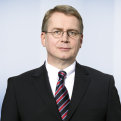After the separation of the "white" area of the RAG from the "black" one the
RAG Aktiengesellschaft bundles up all important expertise concerning
mining. The name of the company that runs the German hard coal mining
industry is
RAG Deutsche Steinkohle.
Like the companies RAG Anthrazit Ibbenbueren,
RAG Bildung and
RAG Ruhranalytik the RAG Deutsche Steinkohle belongs to the RAG Aktiengesellschaft,
the only owner of which is the RAG foundation. Also under the roof of the
RAG foundation is the
"white" area, the new name of which is
Evonik Industries AG with its fields chemistry, energy and real estate.
The RAG Deutsche Steinkohle and the RAG Anthrazit Ibbenbüren have more
then 30.000 well trained employees in their eight collieries, one cokery
and different service companies. The RAG Bildung (translation: "RAG
education") runs different institutions for the education and the further
training in Germany and the RAG Ruhranalytik is an independent laboratory
that is specialized in the field of the solid fuels. The liability between the "white" area and the "black" one has been given
up since the start of the so called Steinkohlefinanzierungsgesetz (translation: "hard coal mining industry financing law")
in January 2008. Instead of it there is a new treaty between the RAG
foundation and the RAG Aktiengesellschaft that has the consequence
that the
foundation has the liability for the so called "eternal costs"
after the shutdown of the last colliery. These costs result from
the fact that e.g. the water will have to be pumped out of the former
collieries in order to avoid that the Ruhr area will be flooded because of
the subsidences caused by the mining industry during several decades.
The Steinkohlefinanzierungsgesetz has been
mentionned before, yet. Very important points
of this law are that the collieries will be closed in a socially
acceptable way and that the decision to close the German collieries until 2018 is screened in the year 2012
by the German Bundestag based on certain criteria
like the safety of energy supply, the world market price for hard coal and the development of the
international markets.
Source: Press report of the
RAG Deutsche Steinkohle AG from Jaunary
2nd in 2008. |




